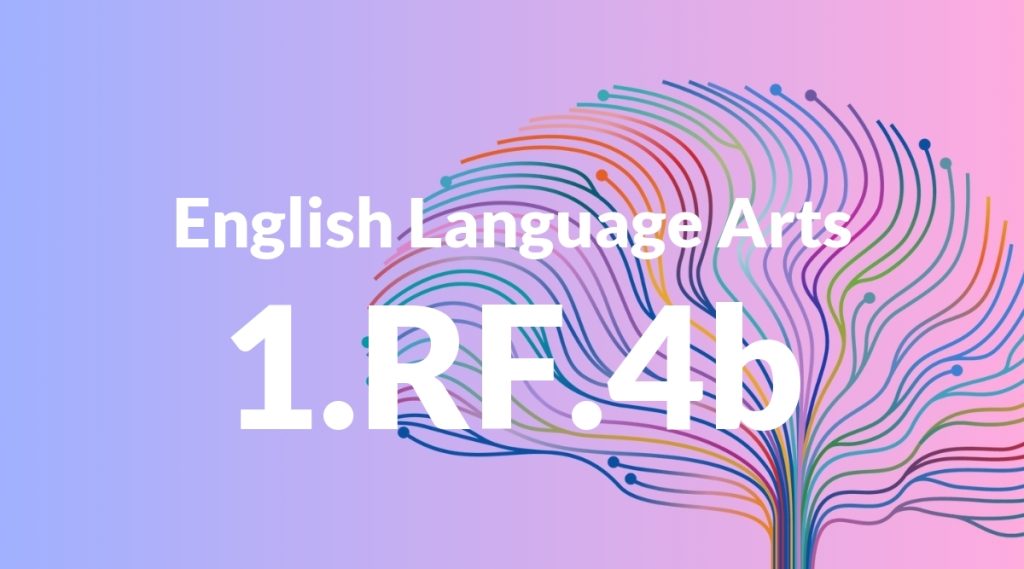Standard: 1.RF.4b – Read grade-level text orally with accuracy, appropriate rate, and expression on successive readings.
Grade level: Grade 1
Subject: English Language Arts
Domain: Reading: Foundational Skills
Teacher Overview
This standard emphasizes the importance of reading grade-level text orally with accuracy, appropriate rate, and expression. Mastery of this skill is crucial for developing fluent readers who can comprehend and engage with texts effectively. Students should have a basic understanding of simple words, sentences, and punctuation, and some experience with reading aloud.
After mastering this standard, students will develop better comprehension skills, the ability to read more complex texts, and improved public speaking and presentation abilities.
Common Misconception 1
A common misconception is that reading quickly is more important than reading accurately. This is incorrect because accuracy is essential for understanding the text and building a solid foundation for future reading skills.
Intervention 1
To address this misconception, teachers can encourage students to practice reading slowly and clearly, using repeated readings of the same text to build both accuracy and confidence.
Common Misconception 2
Another misconception is that reading with expression is not important. This is incorrect because expression helps convey meaning and emotion, making the text more engaging and easier to understand.
Intervention 2
Teachers can model expressive reading and engage students in activities that highlight how expression can enhance comprehension and enjoyment of the text.
Prerequisite Knowledge
Students should be able to recognize and read simple words and sentences, understand basic punctuation, and have some experience with reading aloud.
Subsequent Knowledge
Students will develop enhanced comprehension skills, the ability to read more complex texts, and improved public speaking and presentation abilities.
Instructional Activities
- Reading aloud in pairs or small groups
- Participating in reader’s theater
- Practicing repeated readings of favorite stories
- Engaging in choral reading activities
- Recording and listening to their own reading




